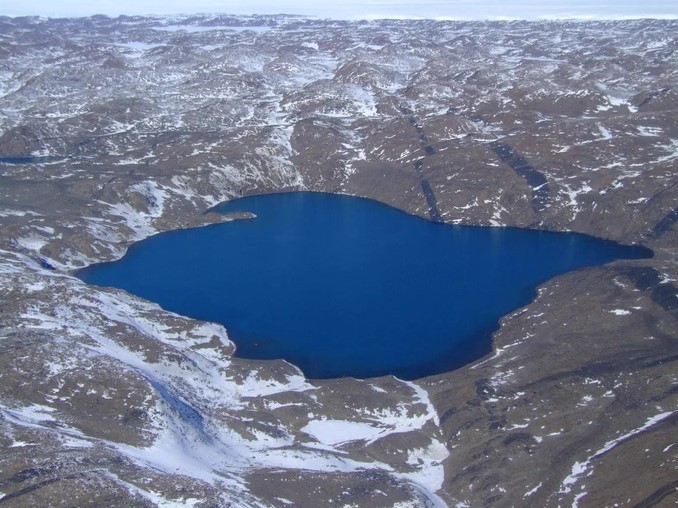Image above: Deep Lake, a small elongate hypersaline lake 0.5 nautical miles (0.9 km) north of Cape Barne, Ross Island. The descriptive name was applied by the British Antarctic Expedition.
Parts of a saltwater lake, near the Davis research station in Antarctica, froze over recently. This might not seem unexpected in Antarctica, but it is since the lake is so salty that it rarely, if ever, freezes.
Mirage News reports that on August 29, researchers from Australia’s Davis research station saw the unexpected at Deep Lake.
“Antarctic expeditioners have witnessed a rare event – ice forming on a super-salty lake near Davis research station,” reports Mirage News. “Picturesque Deep Lake, in the Vestfold Hills, is a land-locked ‘hypersaline’ lake that contains about 270 grams of salt per litre (about 45 teaspoons).
“Seawater, by comparison, contains about 35 grams of salt per litre,” said Mirage News.
As described by Ars Technica, Deep Lake’s extreme salt content makes it very resistant to freezing and extremely interesting to researchers.
“Despite temperatures well below freezing, Antarctica’s Deep Lake remains unfrozen thanks to its extremely high salt content,” said ArsTechnica in a story about Deep Lake’s unique life forms. “The lake was isolated from the oceans about 3,500 years ago, when the continent lifted up around it.”
Although Deep Lake’s shore length is relatively small, it is, as the name implies, deep, at approximately 120 feet in depth. Lying approximately 165 feet below sea level, Deep Lake’s surface water temperature varies between a low of -15°C in winter and 9C° in summer. Recently, however, deep The Australian Antarctic program which manages the Davis research station, measured record low temperatures at deep lake of more than -18℃ in August, resulting in a “rare ice formation,” on the lake.


